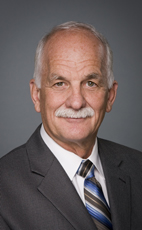If the Chair chooses to cut me off, Mr. Speaker, I cannot stop that, but I do think that my constituents are entitled to be heard in the House. There was a ruling by the clerk's office, there has not been a Speaker's ruling, and I will speak until you cut me off and I will stay to the point.
Once the amendment to paragraph 319(3)(b) is in order then it follows that the remainder of those amendments that I also brought forward are in order from a procedural and scope point of view. Why can one amendment to paragraph 319(3)(b) be considered proper within the scope when the remaining paragraphs cannot? There is no justifiable reason. I direct the Chair's attention to those particular sections.
Why can that distinction be made in respect of the member for Scarborough—Rouge River so as to include them and to exclude all four amendments that deal with a significant issue? Even if some of the other paragraphs were not in order, my proposed paragraph (b) is in order and the Chair has the power to include that paragraph on its own. There is no appropriate distinction to exclude paragraphs (a), (c), or (d) of my proposed amendment.
As recognized by the Clerk's office in accepting amendments 319 and 320, all of sections 318, 319 and 320 would be affected substantively by Bill C-250. The definition of “identifiable group” impacts on the interpretation of all three sections. My proposed amendments that have been accepted seek to amend 319 and 320, and they have been ruled in order. The proposed--

